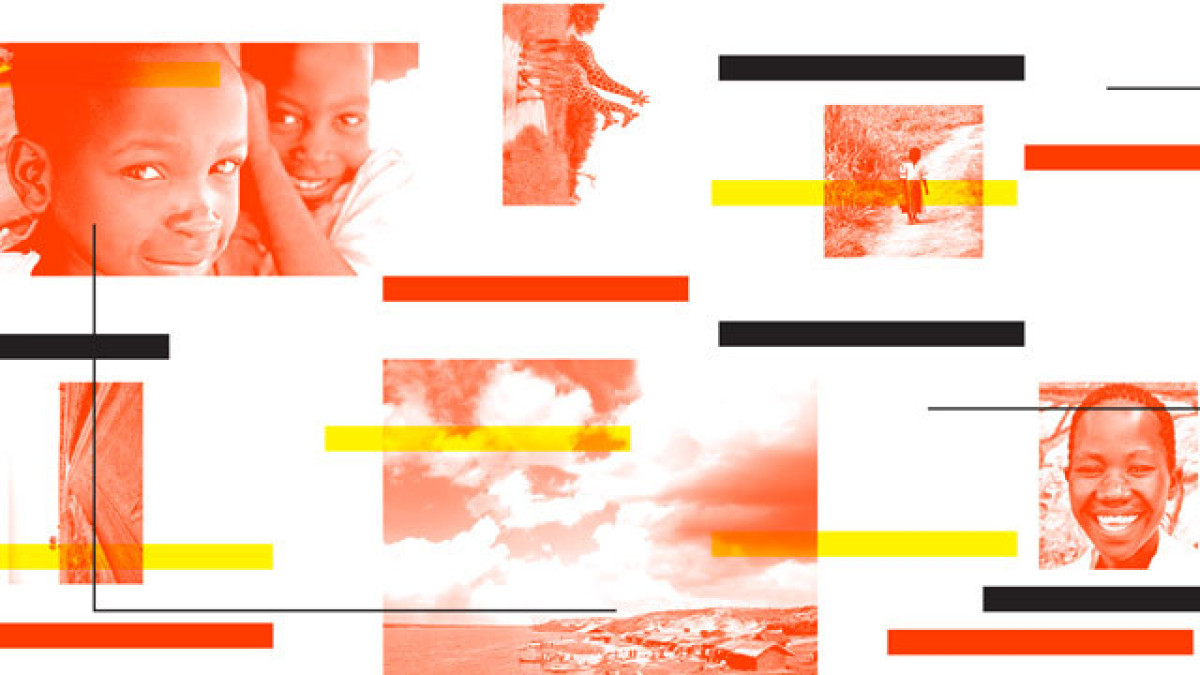
Ugandan Dreams
Watching believers take the lead in Pallisa, Kumi and beyond
We began our first marriage training class in Pallisa, a rural town in a mostly uneducated area of eastern Uganda. On the way we passed a motorbike with a church pew on the back running crossways (always something new to see . . .). Our journey stretched for two hours on a bad road that kept narrowing and narrowing until it was just a path with branches slapping the van on both sides. Until suddenly a church appeared before us, with eager believers spilling out, some carrying the homemade harp-like adungu, ready to worship and to learn.
I was in Pallisa, at the end of that rutted road, because I have a dream, a biblical dream. My dream is to see multiplication occur in every area of the world where I’m invited to lead training (2 Timothy 2:2). And that dream is now on the fast track to becoming a reality in Uganda.
After 35 years pastoring in the EFCA, I joined ReachGlobal in 2007 to train nationals overseas. This has been my privilege in 21 different countries.
I met Bishop Patrick Okabe in 2009. He is based in Mbale, the most strategic city in eastern Uganda. It’s also the key Islamic center for the region, with a university of 10,000 students. He invited me to help train the pastors and leaders in 150 churches that were planted through his expanding organization, Impact Ministries.
Impact Ministries has a large orphanage in Mbale and runs a radio station that now reaches all of eastern Uganda and even over into Kenya. Many of the churches that have been planted have come from radio listeners asking Bishop Patrick to start a church in their town or village. The Bishop is well-trained, having attended Africa’s best evangelical seminary in Nairobi. His new churches are growing rapidly, but funds are limited for bringing in outside experts, so training needs to be homegrown. That's why he's pursuing a partnership with ReachGlobal to accelerate that training.
I’ve visited Mbale five times, and during my last visit, in February 2013, the Bishop asked his church leaders what additional training they would most appreciate next. The need was clear: marriage training.
So for the next few months, I reworked all the good biblical marriage materials I could find, trying to make them as transcultural and flexible as possible. I also requested of Bishop Patrick that he choose some key leaders I could train. To my delight, he selected 18 individuals as “equippers,” all of whom were excited about the material.
Our first training location was that church in Pallisa. Then we traveled to Kumi, a largely Muslim community not far from Mbale, near the border of Kenya. I’d visited Kumi four times in the past to offer training. This time, however, it was my joy to listen to Ugandans—those I’d recently equipped—leading the marriage training themselves.
The equippers shared things I never would have thought of, citing example after example from everyday life that really hit home. The people absolutely loved it, sometimes howling with laughter and embarrassment. I was amazed at both how well these new trainers had already adopted the materials as their own, and how effective they were in communicating. It affirmed what I had been telling them: “You will be better trainers for your people than I ever will be.
Afterward, the participants thanked me repeatedly for giving Africans the right to do the training; it meant so very much.
And it was clear from the questions and comments that a lot of marriages were changing right before our eyes. They were seeing how key marriage principles in Scripture differ dramatically from some of their cultural practices, beginning with women being of equal worth to men. This is a dramatically different belief from what most have grown up with. Even in the cities, men have to raise a substantial dowry for their wives—perhaps 10 to 50 cows, some goats and a couple of nice dresses for the mother-in-law. This has caused men to view their wives more like property they’ve purchased.
The training focuses on the oneness God created for marriage and how it’s a picture of the relationship God wants with us. As this truth sunk in, those in attendance actually became joyful to begin realigning their marriages and the way they treat each other with what the Bible says. They were eager to bring the training to their churches as well, convinced that it would be some of the most valuable truths ever taught.
In Kumi, these believers said they wanted to paint me black because we’ve become such close brothers, and they gave me a special new Lugandan name, Eminet, which means “beloved.”
The next topic we plan to teach in eastern Uganda is “family life.” And it’s obvious that our future training will expand faster and further than ever before, with multiplication of trainers now a reality. My dream is coming true here. I can’t wait to see how it will unfold on my next trips, to the Philippines, Japan, Zambia and beyond.
For copies of the author’s marriage training material, contact him at mark.wold@efca.org
Send a Response
Share your thoughts with the author.